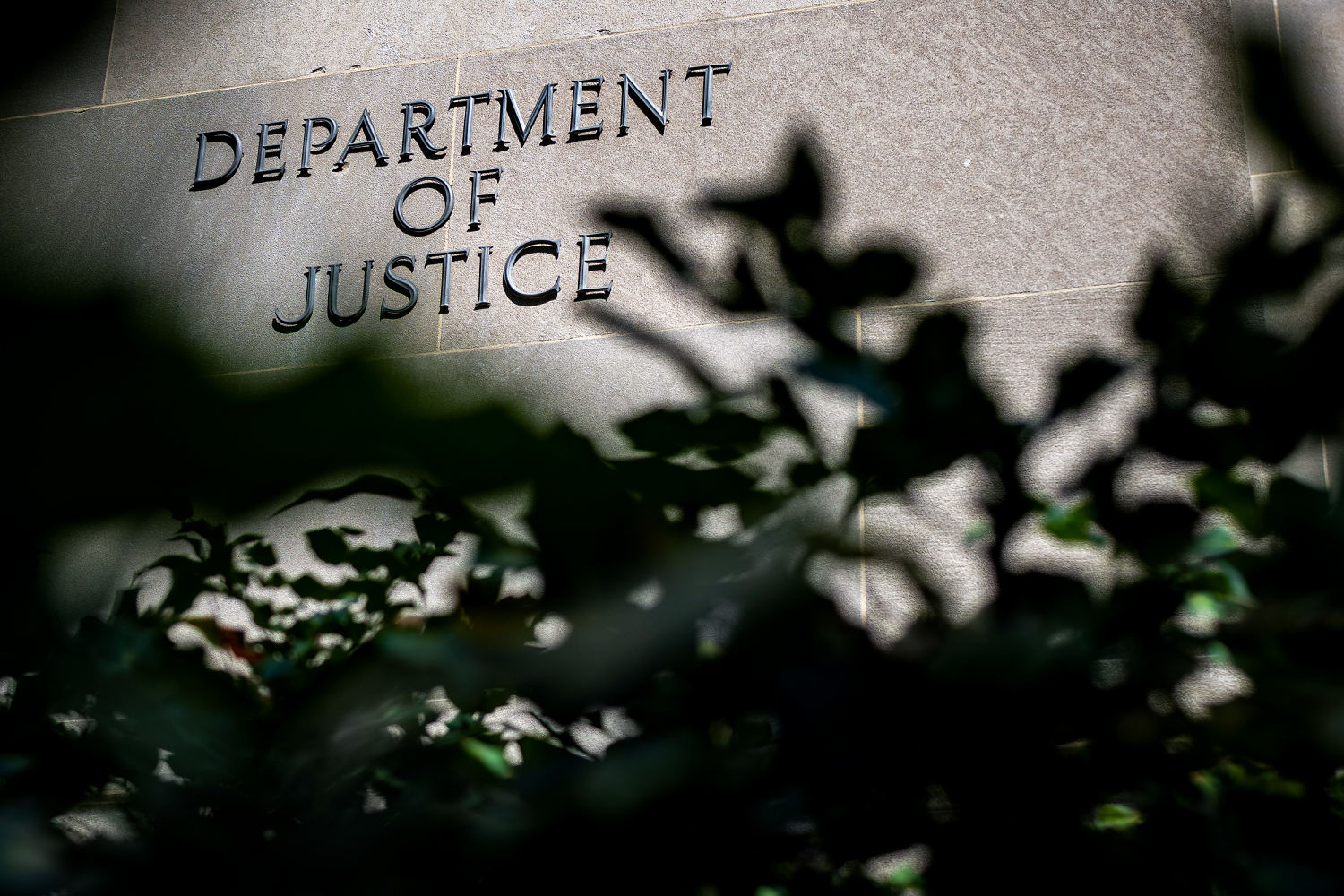[ad_1]

The son of jailed Sinaloa Cartel boss Joaquín “El Chapo” Guzmán Loera and a cartel co-founder who helped lead it for three decades were arrested Thursday in El Paso, Texas, Attorney General Merrick Garland said.
Joaquín Guzmán López and Sinaloa Cartel co-founder Ismael “El Mayo” Zambada García have both been indicted in the U.S., and they face “multiple charges” in connection with the Mexico-based criminal organization, “including its deadly fentanyl manufacturing and trafficking networks,” Garland said in a statement.
The crime kingpin known as “El Chapo” was arrested in Mexico and extradited to the U.S. and is serving a sentence of life plus 30 years that was handed down in New York in 2019.
The Sinaloa and Jalisco cartels “are at the heart” of the synthetic drug crisis in the U.S., which includes fentanyl and methamphetamine, the Drug Enforcement Administration said in its 2024 National Drug Threat Assessment.
“Fentanyl is the deadliest drug threat our country has ever faced, and the Justice Department will not rest until every single cartel leader, member, and associate responsible for poisoning our communities is held accountable,” Garland said in the statement.
Another son of “El Chapo,” Ovidio Guzmán López, who was also alleged to be a cartel leader, was arrested in Mexico in January 2023 and has been extradited to the U.S. to face drug and money laundering charges. He pleaded not guilty in September.
A federal grand jury indicted Joaquín Guzmán López and Ovidio Guzmán López in 2018 on charges that alleged a conspiracy to distribute cocaine, methamphetamine and marijuana into the U.S.
A federal grand jury also indicted Joaquín Guzmán López, Ovidio Guzmán López and two other sons of “El Chapo” last year, the Justice Department said at the time.
The two other sons, Iván Guzmán Salazar and Alfredo Guzmán Salazar, have not been apprehended. The four sons are known as the “Chapitos,” federal officials said, and they took over their father’s drug trafficking networks and his faction of the cartel.
Four criminal organizations make up the Sinaloa Cartel, the DEA says, including “Los Chapitos,” which was run by the four “El Chapo” sons.
The brothers promoted making fentanyl a larger part of the cartel’s business, the DEA said in the 2024 report.
“The Sinaloa Cartel has been producing bulk quantities of fentanyl since at least 2012, but the Chapitos faction is responsible for pushing the importance of fentanyl to the cartel’s ‘bottom line,'” the report says.
Zambada García, known as “El Mayo,” co-founded the cartel and was a co-head of the criminal organization for three decades, according to the DEA. He controls one of the four factions making up the cartel.
Zambada García was a partner of “El Chapo,” but more recently he has been involved in an internal battle with the “Chapitos,” the agency said.
Zambada García has also been charged in the U.S. He was most recently charged in a superseding indictment in February that accuses him of a conspiracy to distribute fentanyl, the Justice Department announced at the time.
DEA Administrator Anne Milgram said Zambada García’s arrest “strikes at the heart of the cartel that is responsible for the majority of drugs, including fentanyl and methamphetamine, killing Americans from coast to coast.”
“El Mayo is one of DEA’s most wanted fugitives and he is in custody tonight and will soon face justice in a U.S. court of law,” Milgram said in a statement.
There were an estimated 107,543 drug overdose deaths in the U.S. last year, according to the Centers for Disease Control and Prevention, most of which — an estimated 74,702 — were from synthetic opioids, which include fentanyl. The second most were from psychostimulants like methamphetamine, with an estimated 36,251 deaths, it said.
The Sinaloa and Jalisco cartels make fentanyl in labs in Mexico and then ship it into the U.S., the DEA said in this year’s report.
Both cartels are alleged to have ordered subordinates last year to stop trafficking in fentanyl, and the “Chapitos” made a public show about it, but the DEA concluded that “the ban is probably a public relations stunt.”
“Throughout 2023, fentanyl was seized at the border in equal or higher quantities as in previous years, and no DEA field office reported that fentanyl is less available or more expensive, either of which would point to a decrease in the supply,” it said.
[ad_2]
Source link
